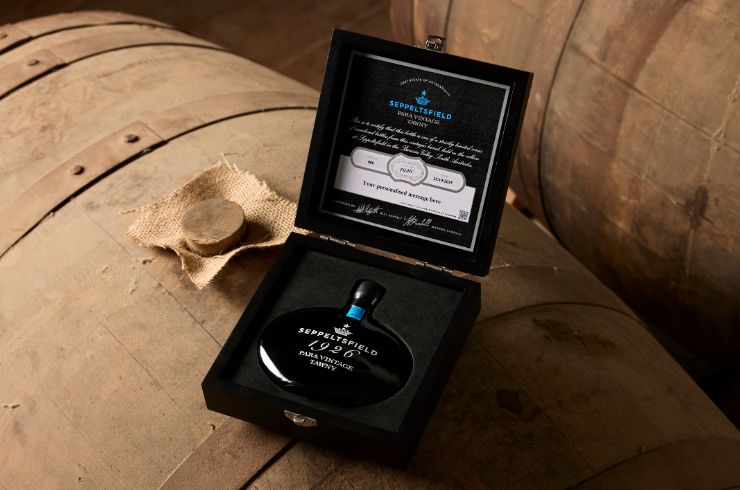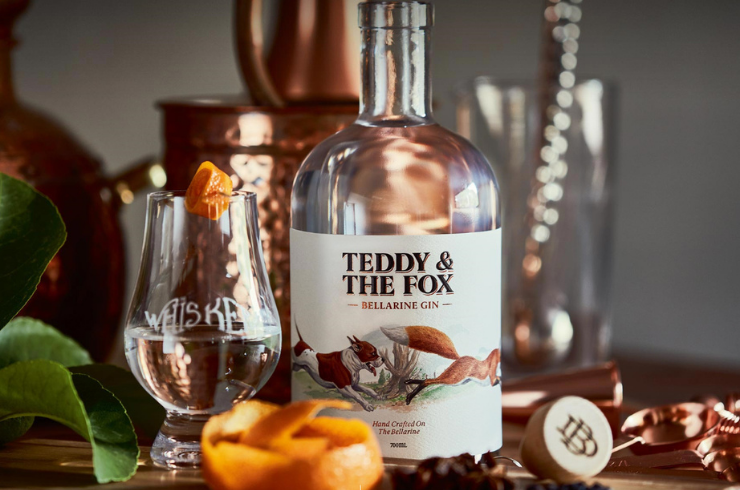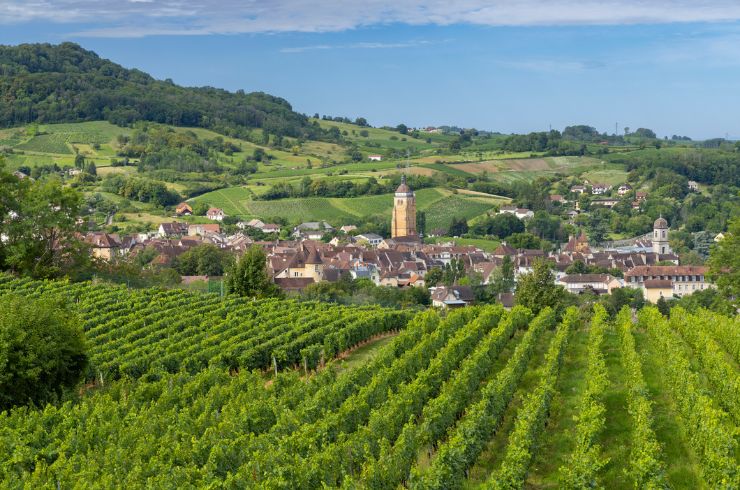The Hunter Valley is a region that has built its reputation around relatively traditional winemaking, signature varieties, family values, and doing what’s been perceived as 'what the Hunter does best' for over a century. Fast forward to the 2020s, some 150 years after the region’s inception, and there are some exciting developments. We've seen some new entrants to the market, traditionalists challenging the norm, young blood bringing more responsible farming and winemaking practices and worldly experience into their businesses.
Take Ollie and Alessa Margan as an example – born and bred into winemaking family fame – Margan Wines (children of Andrew and Lisa Margan). The brother and sister duo spent their formative years in and around the winery learning the ways of their parents. They both fled the coup in their early twenties, gathering education, experience and life lessons before returning to work in the family business as young adults, bringing with them a whole new perspective.
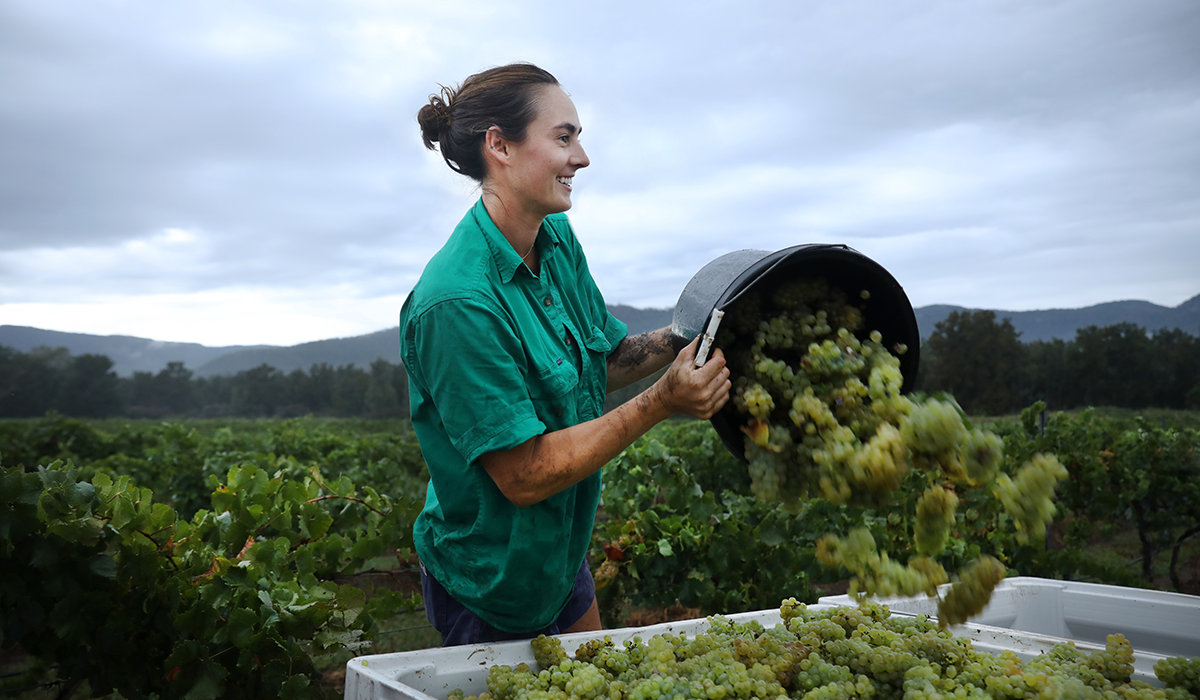
Alessa, with a particular penchant for leaving the land in better condition than which it was found, focused her studies on sustainable faming. While Ollie's focus was on sustainable, and as he calls it “gentle” winemaking practices. Back in the family business, they are busy implementing important sustainability initiatives as well as taking their family’s pioneering approach to alternative varietals and styles further into the brand’s product mix.
“Without eschewing traditional regional styles/varieties completely, an evolving climate has presented the opportunity for us to look at different ways in which we approach viticulture and winemaking. Barbera and albariño are varieties that, for us, have proven resilience in challenging vintages. Additionally, they have presented great winemaking opportunities to think about texture and aromatics; whole bunch fermentation, skin contact, and concrete tanks are some of the techniques used with these varieties to create as compelling and quality wines as possible,” says Ollie Margan on the future direction of Margan Wines.
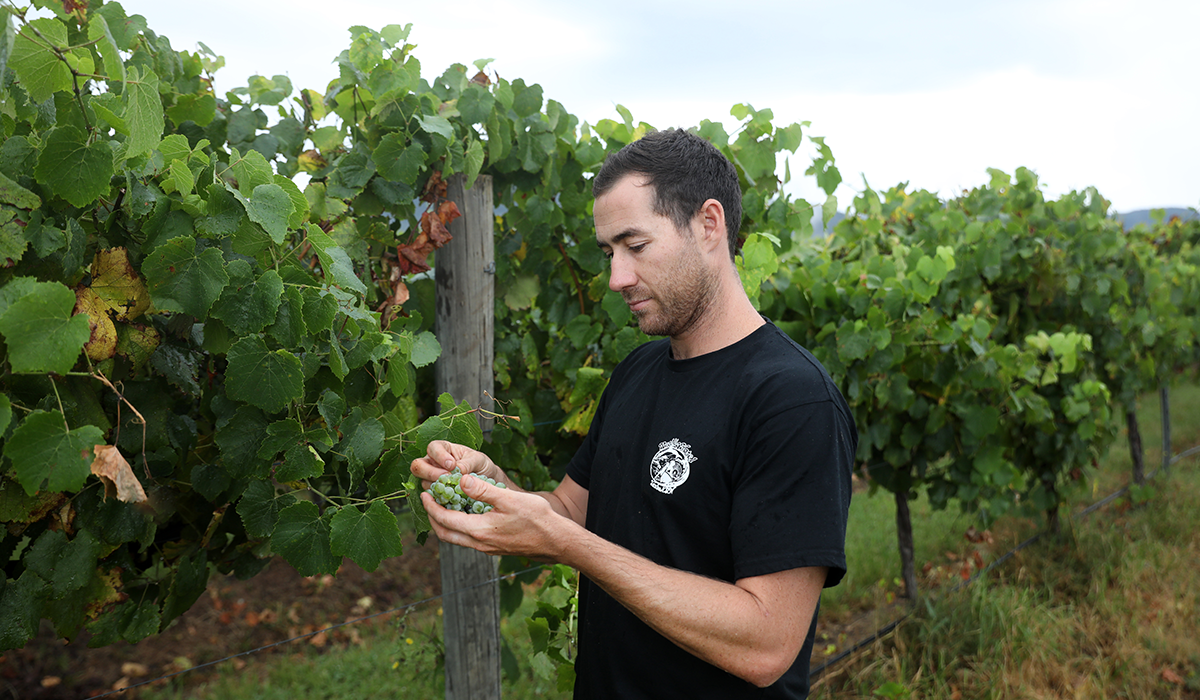
With a strong focus on regenerative agriculture, and well into the process of becoming certified organic, the Margan estate is a certified Sustainable Winegrower – farming in a way that does not deplete natural resources or compromise the land for future generations.
It was perhaps Tamburlaine Organic Wines that led the way in the region for organic winemaking practices, providing a benchmark for Hunter Valley organic viticulture, and maintaining a very enviable position in the market well ahead of its time.
First certified organic in 2003, under the fortuitous guidance of Mark Davidson, ongoing trials with various organic inputs and methodologies has proven their belief in contemporary organics to be valid. An underlying belief in regenerative and sustainable farming also led to them reducing their reliance on chemical and systemic inputs.
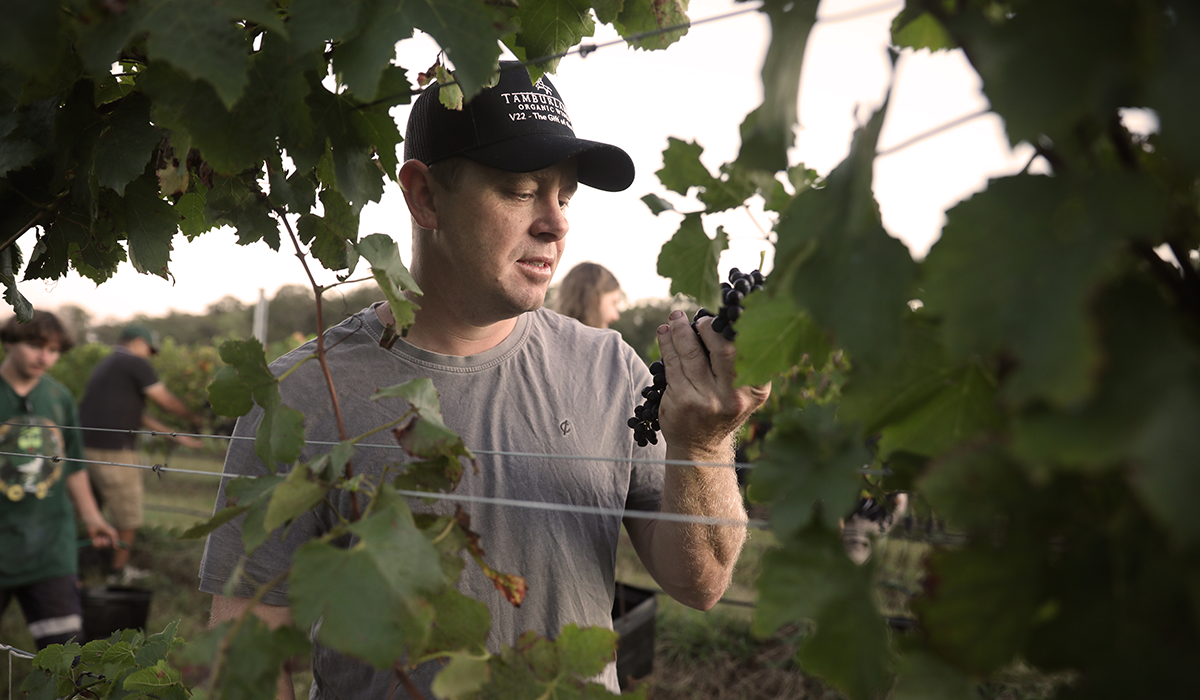
“A holistic approach to vineyard management has been evolving and improving, as new techniques, technologies and equipment, and more targeted organic inputs come onto the market. It's meant that for us, being organic is a no brainer’’ says Mark Davidson.
Tamburlaine has been responsible for many firsts in organic winemaking over the years. Since 1988, the winery has been improving methods to reduce and recycle winery solid and water waste. They also have an ongoing commitment to reduce packaging, use energy more efficiently and achieve carbon neutrality. To meet market demands for less sulphur in wine, Tamburlaine launched a No Added Sulphur preservative-free range in 2013, which has proven incredibly popular. The winery also undertook the rather arduous role of trialing all available vegan products on the market to officially switch to 100 per cent vegan fining agents in 2017.
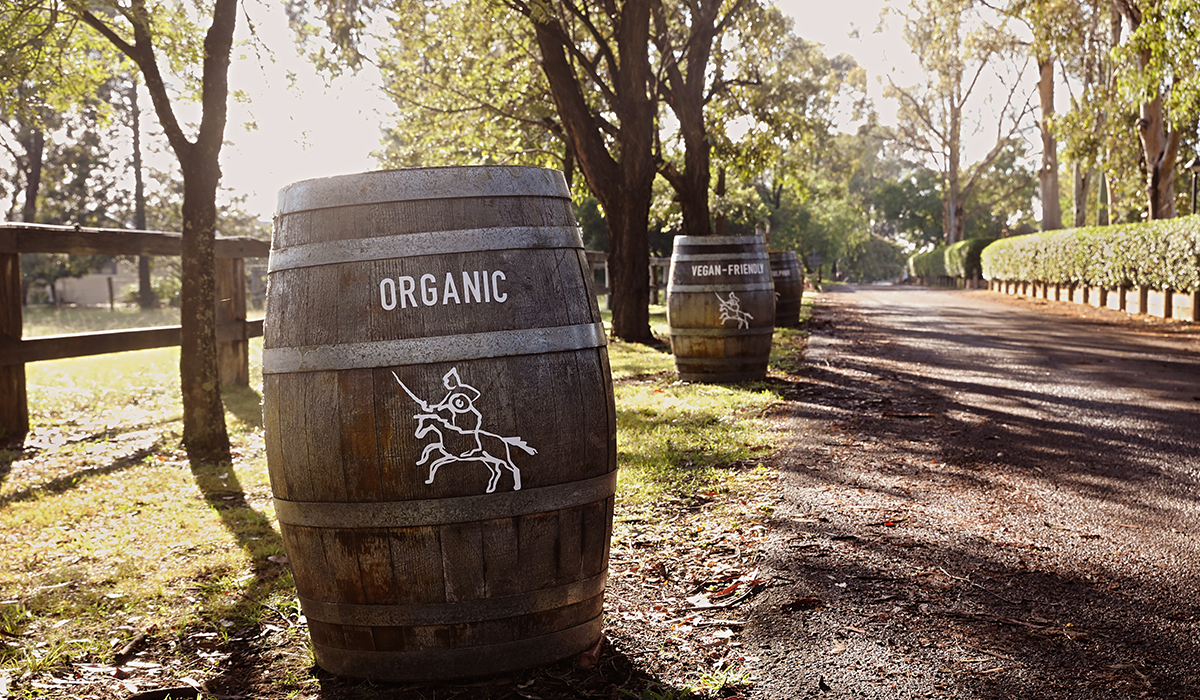
Most recently, the brand has added a new range of pet-nat wines – petillant naturel, petillant rouge and piquette – a range of curated wines appealing to natural or minimal intervention wine lovers. A triple treat of organic, vegan, no added sulphur, and minimal intervention winemaking.
Over at De Iuliis, where tradition has played a significant role in its formative years, sustainability has long played on chief winemaker Mike De Iuliis’s mind. He admits that the viticultural and farming practices are intrinsically linked to a long-term generational mindset. But where Mike will argue that he differs, is that there is a genuine need to ensure the environment is adequately cared for in this lifetime and for future generations.
"For the last five years we’ve been using biochar across our vineyards. Biochar has the capacity to be an immediate solution to reducing the global impact of farming. It’s fascinating that biochar can store the carbon produced by burning pruning material and the natural decomposition of agricultural matter in the ground, thus allowing for significant reduction in greenhouse gas levels. It’s also proven that its presence in the vineyard can improve water quality and increase soil fertility," Mike says.
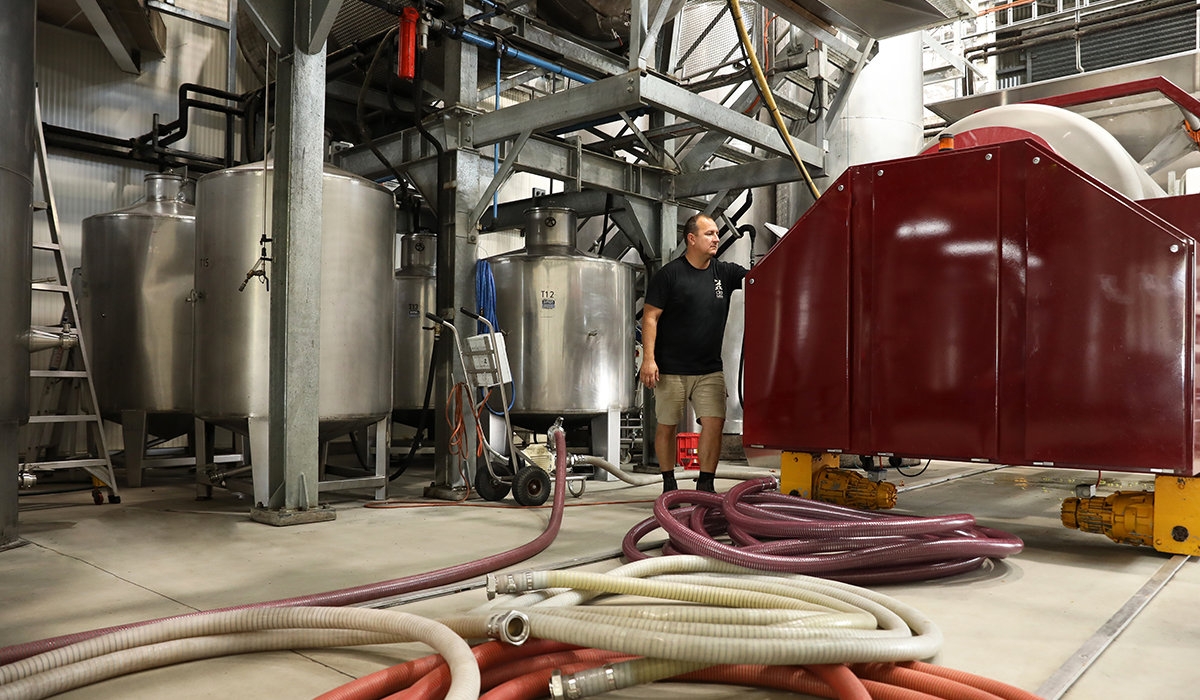
"Our family vineyards are a mixture of iconic Hunter varieties, and some alternate varieties that we’ve planted in recent years. We’ve picked the alternative varieties, including pecorino, touriga and montepulciano, as they are more suited to the extreme weather patterns. As climate change continues to increase our summers – these varieties thrive in a warm, Mediterranean climate like the Hunter. By choosing to grow varieties that are suited to the climate we can minimise the risk of disease and struggle in the growing season, which helps eliminate the need for harsh chemical sprays."
With a firm belief that great wine starts in the vineyard, De Iuliis has eliminated the use of herbicides by using an undervine cultivator, composting grape skins in between rows, using fine lime to replenish microbial eco-system and deep-rooted cover crops to aerate soil.
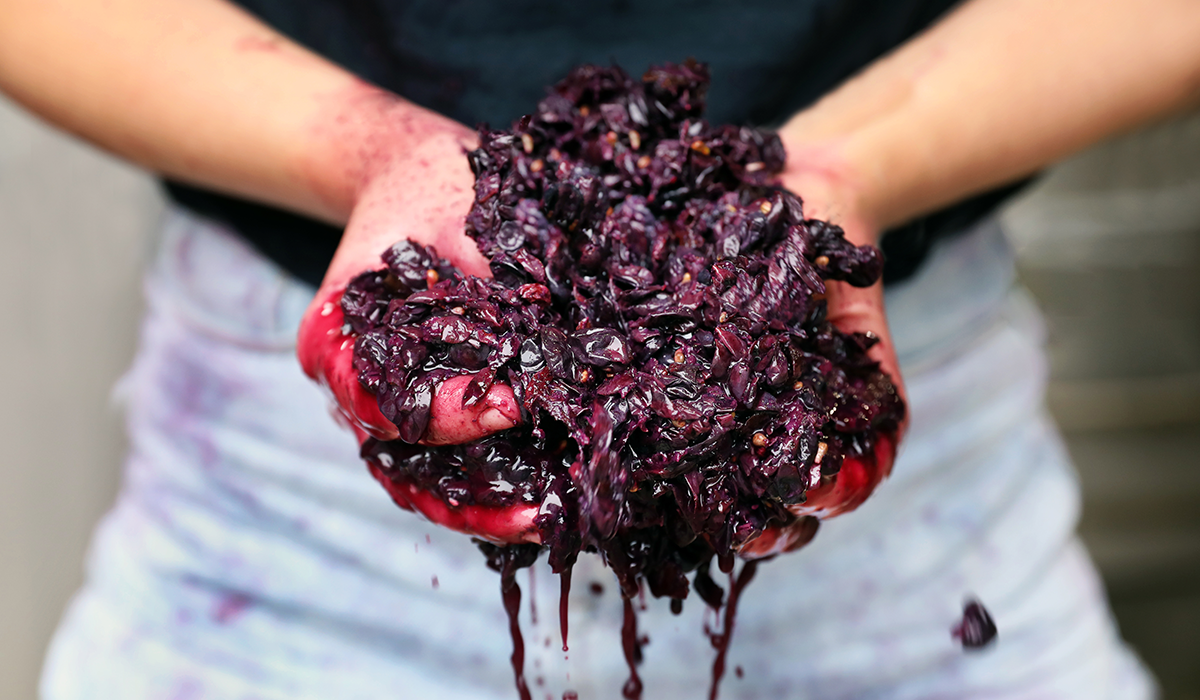
In the winery where there is a heavy reliance on water and power, they’ve invested in solar panels and tanks for water storage. A hefty upgrade of the refrigeration plant and wastewater system has seen energy consumption reduced by 50 per cent and 30 per cent respectively.
The cellar door which was built by architect Lionel Glendenning, more than 20 years ago, was designed with sustainability in mind. The double glazed windows are positioned to capture sunlight and reflective heat for winter and to avoid the glaring sun in summer. Mike says De Iuliis only use Australian produce and Australian-made cleaning products at the cellar door.
"While there is still work to be done, the next achievement on our sustainability journey will be certification for our vineyards and winery through Sustainable Winegrowers Australia. We are committed to our ongoing sustainability journey and are always open to new innovations at De Iuliis,” Mike says.
For more information on the Hunter Valley wine region, visit winecountry.com.au.
*This article was supplied by the Hunter Valley Wine Tourism Association. The article first appeared on winecountry.com.au.
Image credit: Chris Elfes @elfesimages.
Latest Articles
-
Travel
Must-visit McLaren Vale cellar doors
1 day ago -
News
The history of Seppeltsfield's treasured 100 Year Old Para Vintage Tawny through our favourite tasting notes
1 day ago -
Spirits
10 exciting gins to try from some of Australia’s best distillers
1 day ago -
From the tasting team
Another Round: Mike Bennie on Macvin du Jura
2 days ago

